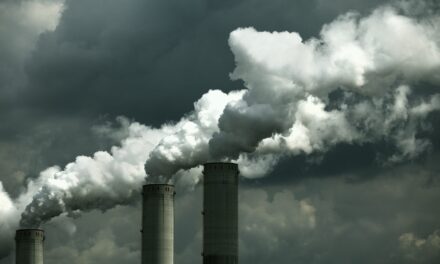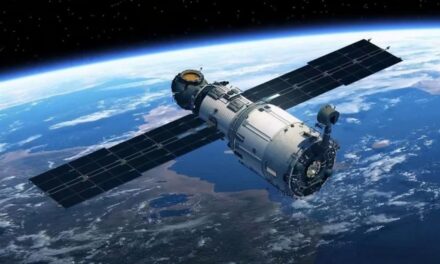Martin wrote compellingly of the political threat President Donald Trump’s attacks on climate change pose for both Republicans and Democrats. I would like to focus for a moment on the sheer insanity of deliberately ignoring reality.
That is exactly what Donald Trump is doing as he tries to roll back the very science of climate change itself
[P]arts of the federal government will no longer fulfill what scientists say is one of the most urgent jobs of climate science studies: reporting on the future effects of a rapidly warming planet and presenting a picture of what the earth could look like by the end of the century if the global economy continues to emit heat-trapping carbon dioxide pollution from burning fossil fuels.
The attack on science is underway throughout the government.
Philip B. Duffy, president of the Woods Hole Research Center, is quoted later in the article saying Trump’s attack on science “reminds me of the Soviet Union.” It is utter lunacy what the president, his party, and his associates are doing.
The president’s advisers amplify his disregard. At the meeting of the eight-nation Arctic Council this month, Secretary of State Mike Pompeo dismayed fellow diplomats by describing the rapidly warming region as a land of “opportunity and abundance” because of its untapped reserves of oil, gas, uranium, gold, fish and rare-earth minerals. The melting sea ice, he said, was opening up new shipping routes.
As visions of dividends dance in Pompeo’s head, the reality is that climate change will cost Americans and people around the world lives and property. It already is.
Already Louisiana is preparing for an “existential crisis” along its coast.
[I]t was with a certain sense of redemption that I read headlines from across the nation last week like these:
“Louisiana’s new climate plan addresses ‘existential crisis’”
“Levees won’t save Louisiana from a climate ‘existential crisis’”
“Louisiana unveils ambitious plan to get people out of the way of climate change.”
Those reporters were not quoting me, but words from a major report released by the state’s own Department of Community Development on what kind of future – if any — southern Louisiana has as seas rise and the land sinks.
Meanwhile, insurance in the state has skyrocketed as the industry has determined climate change is its biggest risk.
It’s a similar story in eastern Canada.
Climate change means that catastrophic flooding will only become more common, but experts say the events of the past week highlight the fact that Canada has still not done enough to prepare for such disasters.
The current mass evacuations have forced Canadian politicians at every level to confront this dramatic evidence of climate change in a federal election year. Speaking on Sunday night, Justin Trudeau, the prime minister, suggested that using federal money to help relocate communities affected by flooding was a possibility. “Once we secure the situation through this spring flooding season, we will have to have significant reflections and conversations on how we move forward,” he said, according to the Canadian Press.
This is not the first time Quebec has seen large-scale flooding: in 2017, Quebec rivers reached similar levels.
Indeed, the government is considering buyouts of up to $200,000 Canadian dollars (about $150,000 in US currency) to move.
Meanwhile in California, we just saw the city of Pleasure Paradise burn, as California’s fire season seems to shift into 365 days a year.
Y’all will have to permit me to get personal for a moment: I have close friends in Baton Rouge, Lafayette, and New Orleans who are at risk from floods. My son and his mother live in Montreal, where the boy completed his academically-required volunteer hours by directing traffic and helping with sandbags during the 2017 floods. A close friend of mine and his young daughter have been evacuated and relocated twice due to the fires in California. He’s now thinking of leaving the state behind.
These are real human impacts that are affecting us now. The result of Trump’s refusal to even accept that climate change is a real thing -and the active efforts to actually make it worse- will be a terrible legacy for our children and grandchildren. And while the will is there among the people, there’s this big ugly corrupt monolith called the Republican Party standing in the way of any change, like the entrance to the world’s biggest cemetery.
Kurt Vonnegut once wrote, “We are all addicts of fossil fuels in a state of denial, about to face cold turkey. And like so many addicts about to face cold turkey, our leaders are now committing violent crimes to get what little is left of what we’re hooked on.”
That would seem to be the case.
But Vonnegut also once said, “as the world is ending, I’m always glad to be entertained for a few moments. The best way to do that is with music.” So here’s a little apocalyptic metal to calm your nerves.
Good night and good luck.
Awful Baby Trump by Matt Johnson. Purchase his work here.








I’ve lived through two years of historic flooding along the Arkansas River separated by four years. The floods of 2015 in the late spring and then right at the start of the Winter Solstice were considered catastrophic. The damage to low-lying areas was extensive. There are folks who simply were never able to rebuild flooded out homes. The record flooding we are seeing along the Arkansas River from at least as far north as Tulsa all the way down to Pine Bluff will defy any historical precedent. We’ve seen frontal systems come through that seem more suited to February, when the air is colder and dryer. Those same systems, with more moist and unstable air to work with, do some serious damage. And these are stubborn systems – they just don’t move that fast. Very unusual. This will ruin family-owned farms. This will ruin businesses that operate along the river, including shipping. I doubt barge traffic along the river will return to normal until year’s end – and that is assuming that we don’t get any more major flood events.
I would not expect a lot of coastal communities along the Gulf to be long for this world at this point. Same I expect with coastal communities across our aching planet. Violent storms and rising sea levels are the new normal. This only gets worse.
Sad thing is I remember being a college student taking a class on environmental biology – roughly around the time of the Chernobyl disaster. I can touch on nuclear at another point, but I was impressed with the level of evidence that humans were responsible for warming that was already easily detectable. My prof did not even have to be alarmist to make it clear – just by going over some data – that alarms needed to be sounded. And they were. And very few heeded those warnings, including those who actually had some tangible power to do something when the worst could have been averted. Thinking back to how the Chernobyl disaster was handled, the description of our own government’s current party line on climate change is “Soviet” indeed. We are reverting to The State asserting what the facts are and we must adhere to and have faith in The State and Dear Leader. That does not bode well for the future.
In my own way, I tried to get the word out. I tried to do the right things. Walked when I could, drove economy vehicles (including an aging second-hand hybrid), recycled, etc. It just was never going to be enough. As an individual there is only so much to be done. This was and is a systemic problem that required a systemic solution. So it goes, as Vonnegut might have said. So it goes. My epitaph will likely be Vonnegut-inspired: “He tried.” Seems fitting. I just wish it had been enough.
Thanks for this comment. And it doesn’t take into account the endless string of tornadic activity which the same majority denialist areas of the country are now experiencing.
All to “own the libs” and buy $60,000 monster pickups on credit. That can be their epitaph!
Just one small quibble re:
I’ve made similar statements wrt increasing frequency and severity of climate-driven weather events. Then I came across a climate scientist pointing out what’s wrong with calling present conditions “the new normal”: That implies climate has reached some sort of equilibrium state, what we might call “fluctuating stability” or variability around a stable mean. But that’s not what we have. We have accelerating warming fed by positive feedback loops, with ever-more-frequent, steadily worsening impacts to show for it. Which you do seem to be aware of and acknowledge with:
I’d just counsel avoiding the “the new normal” mis-characterization.